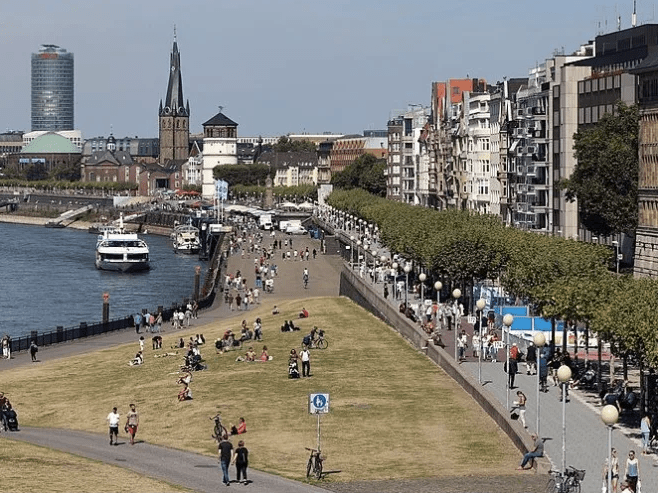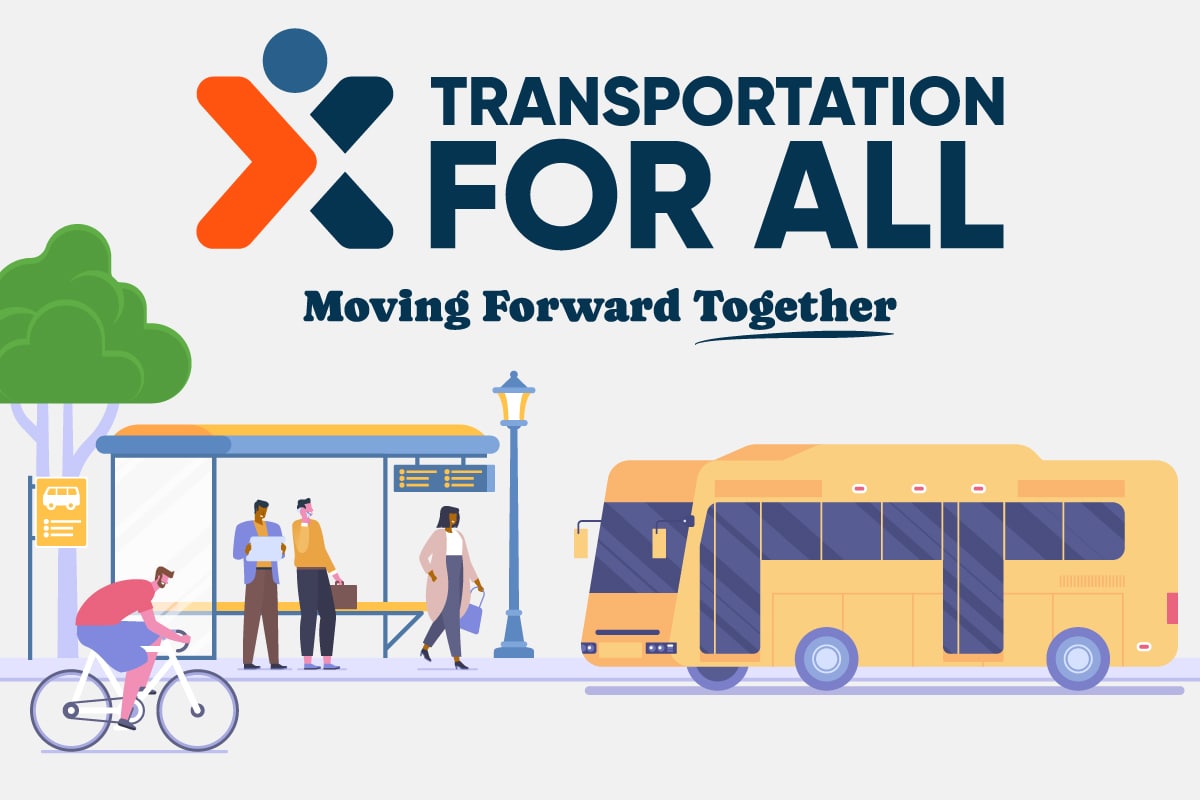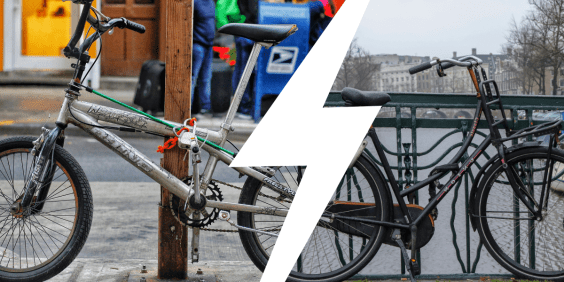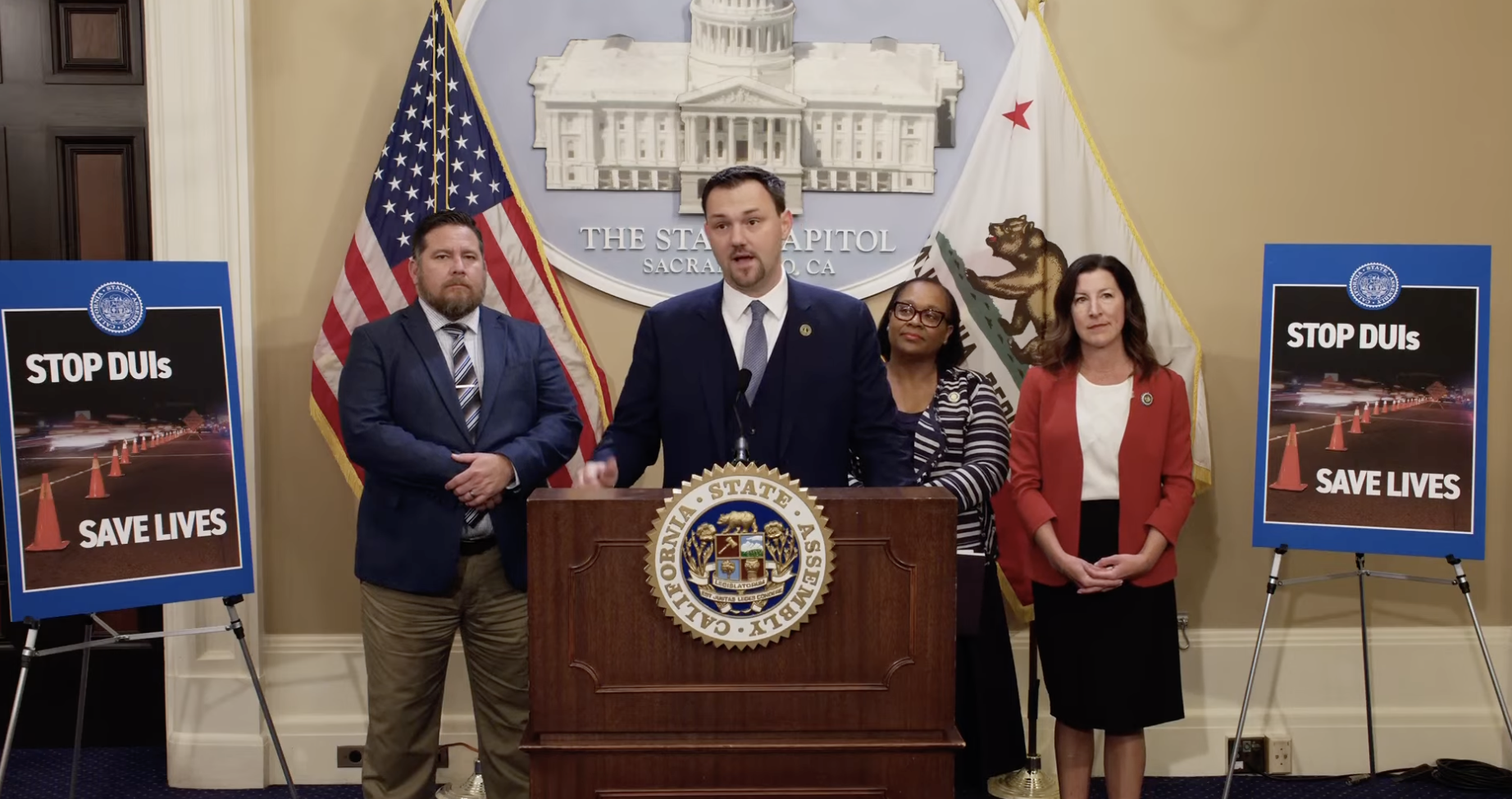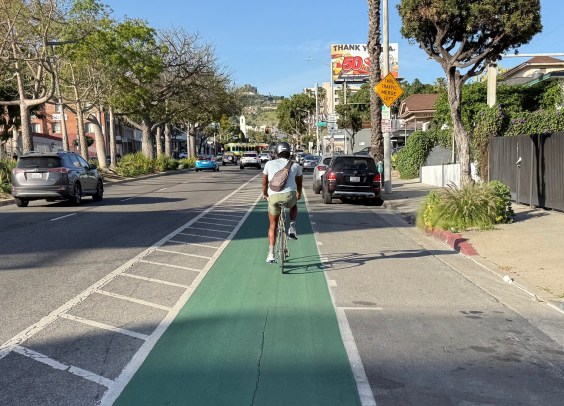Editor's note: there's so much to write about in the safe streets and livable cities realm that it's rarely necessary to redo/net the mainstream press when they've got a topic covered. But Wednesday's piece in SFGate about a car-free Embarcadero proposal was too much to pass up!
Advocates Stacey Randecker and Alex Soble were featured in A car-free Embarcadero? These San Francisco organizers are serious about it, Wednesday's story by Alex Shultz in SFGate about a nascent movement to get cars off of San Francisco's iconic waterfront. From the story:
First, a “Grand Embarcadero,” as Randecker and Soble have dubbed the project, would be a far more vibrant, inviting area than the currently car-riddled street, one that could match or surpass comparable destinations like Chicago’s Lakefront Trail, San Antonio’s Riverwalk and Paris’ Seine waterfront. “There's huge potential for the Embarcadero to be an iconic, world-class space like that,” Soble said.
As the story points out, given the paradigm shift that happened with last month's votes on Measures I and J (which together saved the JFK Promenade and the Great Highway Park, showing the overwhelming demand for safe, car-free spaces in San Francisco), such bold transformations seem more possible than ever. And, of course, banning cars on the Embarcadero isn't nearly as "radical" as tearing down the Embarcadero freeway once was.
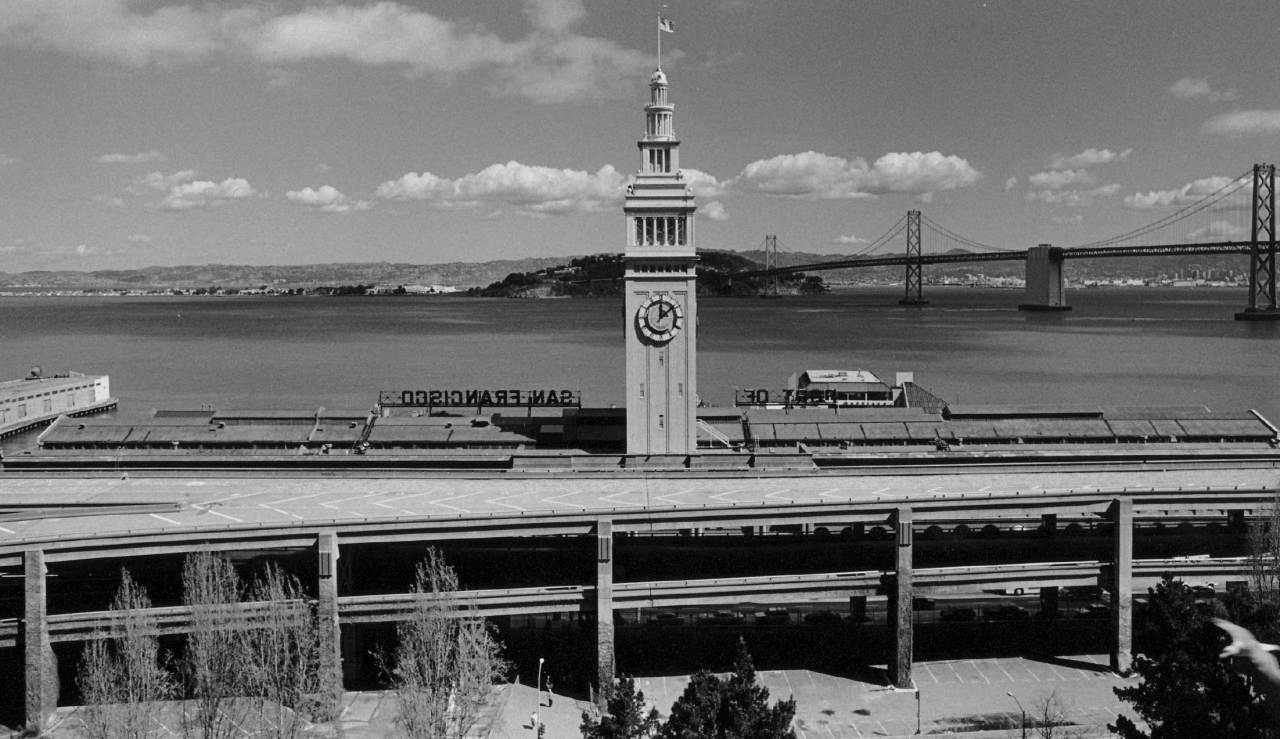
California State Assemblymember Matt Haney and State Senator Scott Wiener, according to the story, are already behind the proposal.
Streetsblog mostly wants to hear from readers about this exciting idea. But first let's also set the record straight on a couple of the quotes in the SFGate piece--which had to "show both sides," even when one side is playing fast and loose with historical fact.
First of all, there are lots of cities around the world where waterfronts were ruined by freeways and excessively wide traffic-clogged boulevards and then corrected years later. SFGate mentions "Chicago’s Lakefront Trail, San Antonio’s Riverwalk, and Paris’ Seine waterfront." There are too many others to list, but Streetsblog has visited Dusseldorf many times over the years and seen the transition there first hand, no earthquake required:
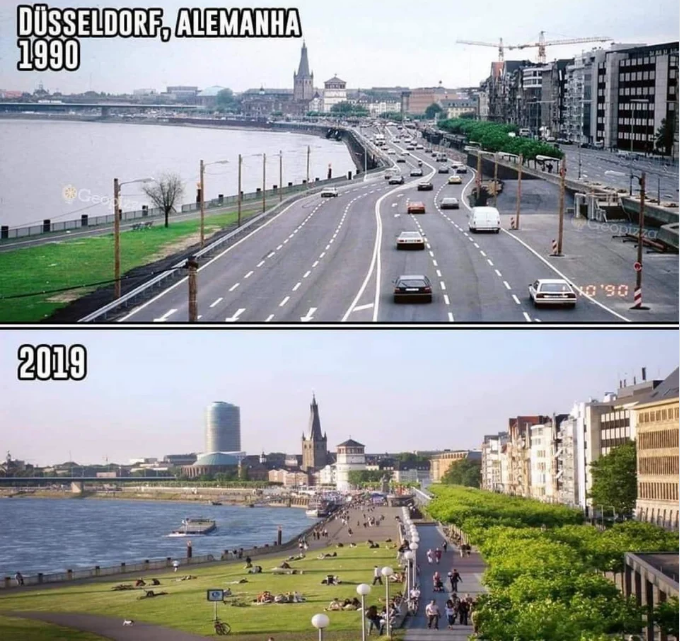
The point is Dusseldorf and all these other cities did not suffer an economic catastrophe when they either removed or moved their waterfront motorways--quite the opposite. And yet SFGate quotes Randall Scott, executive director for the Fisherman's Wharf Community Benefit District, stating that a car-free Embarcadero would "...decimate the economic vitality of Fisherman’s Wharf and North Beach.”
Sigh.
How many times has this claim been made in cities around the world, only to find the road closures increased receipts and property values, as was the case even in San Francisco after the original Embarcadero freeway teardown? Even more grating was the quote from Queena Chen, co-chair of the Chinatown Transportation Research and Improvement Project, who said "The closing of the Embarcadero will be devastating to Chinatown and also to all the underserved/vulnerable populations in our southern districts."
That's almost exactly what the late Rose Pak said about tearing down the Embarcadero freeway!
The Central Subway was built in large part to offset that concern, even if history showed it to be baseless. In fact, that project was built under the Stockton Street tunnel instead of through it to preserve road space. Chinatown may have suffered during the Central Subway's construction, but that's done now; when the Subway starts full operations next month, with a dedicated station for Chinatown named after Pak, the district will be more accessible than it's ever been. The only thing that's still lacking is a safe way to get there by bike.
Remember there are already between ten and fifteen (depending how one counts them) multi-lane, car-dominated streets connecting the Marina District, Chinatown, and other neighborhoods to the rest of the city without the Embarcadero. Before someone says it: there's no need to underground the traffic lanes of the Embarcadero, as was done in some waterfront promenade examples from other cities.
Nevertheless, a car-free Embarcadero plan should probably be coupled with further transit improvements, such as:
- Bring back the E Embarcadero, but using using modern streetcars, perhaps low-floor/dual-bording light-rail trains, that would travel all the way from Caltrain to the Marina District. Those trains will be able to move so much more efficiently with traffic conflicts removed. The Fort Mason tunnel needs to get rehabbed with a short surface extension so trains can continue all the way to the Palace of Fine Arts.
- The Central Subway, obviously, needs to be extended to North Beach and beyond, coming to the surface and connecting with modernized F and E lines.
Sorry, rail preservationists - but the historic streetcars could still run on weekends and off peak.
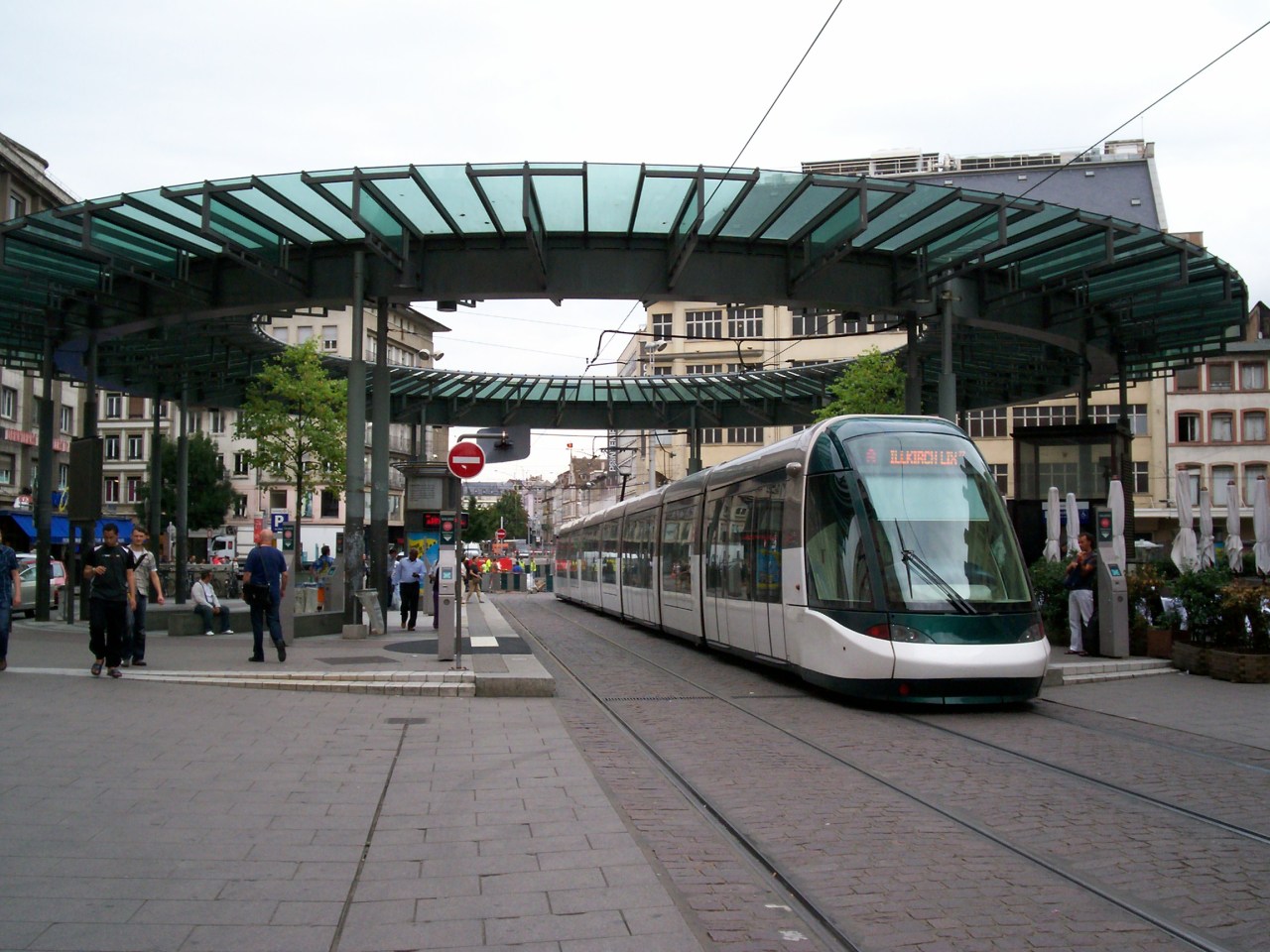
If those transit improvements are done concurrently with the conversion of the Embarcadero to a car-free space, the naysayers will be proven utterly wrong again.
"We are extremely supportive of a car-free Embarcadero and we look forward to a planning process that is inclusive, equitable, and accessible. This project would be hugely transformative to our city's waterfront space, and strong community engagement now is the key to give this plan the support it needs to be successful," wrote Justin Hu-Nguyen, Director of Advocacy for the San Francisco Bicycle Coalition.
What do readers think? Comment below.
